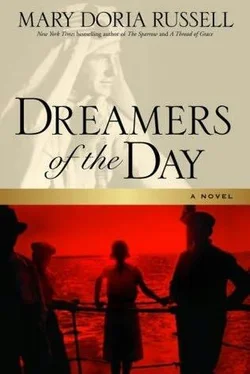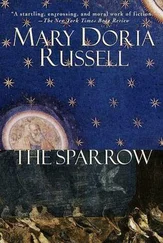I wanted to keep Mumma safe. Young and useless as I was, I tried to help but succeeded only in wearing out her threadbare patience. “Oh, Agnes,” she’d sigh. “It’s easier for me to do it myself than to take the time to teach you.”
Looking back, I am sad to realize that I never thought about keeping Papa safe; it never occurred to me to worry about that benign but absent figure. When at last he had worked himself into an early grave, the business was out of debt. Mumma took over, bereaved but eager to put her own ideas into play. “Your father was not a fool,” she told us children on the way home from the funeral, “but he had no head for business.” And Mumma certainly did.
Her first move was to renegotiate arrangements with suppliers. “Thank you for your consideration,” she’d tell them in her small, sweet voice. “There are those who’d be happy to take advantage of a poor widow with three children to support.” Once she’d struck a bargain, her brother, John, wrote ironclad contracts to enforce the deal. “No more handshakes,” Mumma told us grimly. “Those weasels will cheat you every chance they get.”
I gladly accepted my duties as the “little mother,” as the phrase of those times had it. I was proud to be trusted at last with household duties for which Mumma had no time. I cleaned and cooked and mended as best I could, gratified that I was less a burden to her than before and that I could sometimes make our dear mother’s life easier. If she was too tired to notice my efforts or rated them poorly done, it was only because she worked so hard for us at the factory and she had high standards for everyone.
I was the eldest child, born a year before Ernest and three years before our sister, Lillian. Of Lillie Mumma would often say, “We saved the best for last.” And who could disagree? Strawberry blond and spritely, Lillian was like fireworks: bright and quick and colorful. She was a precocious chatterbox at two, following me around the house like a puppy and talking all the while. Once, when she was not quite three, we stood hand in hand, watching Ernest burn trash out back. I remember this so clearly! Lillie pointed at the sparks that rose skyward from stirred embers and piped, “Look, Agnes! Baby stars.”
I adored her, but our brother was not so charmed. Lillian was fearless at four and took Ernest on in sibling squabbles, quoting from the Bible as she boldly scolded him for striking her because he simply could not think fast enough to hold his own in argument. At five, she wrote a letter to God, asking Him to take good care of Papa; her penmanship was already better than Ernest’s. She skipped first grade, sailed through second, and won the spelling bee that year, competing against her elders. When she skipped a grade again, Ernest sulked, humiliated by a younger sister who was his equal or better in all things academic, but I was grateful for her precocity. She would read aloud from my textbooks while I washed dishes or hung out laundry. Without Lillie’s help, I never could have stayed in school.
By fourteen, I could see my life laid out before me. While Mumma ran the business, I would keep house for her and Ernest and Lillie. Later, I would become the sort of maiden aunt who lived in a spare bedroom and helped in the raising of nieces and nephews.
Marriage seemed out of the question—even then, when I was so young. You see, Ernest and Lillie were handsome persons with Mumma’s red-gold hair and Papa’s bright blue eyes. I shared their coloring and—in favorable light, from certain angles—a similar cast of feature, but for me, you must imagine a young Eleanor Roosevelt: bucktoothed, weak-chinned, strong-minded, with a father’s bony angularity in place of a mother’s delicate prettiness.
But Eleanor married, you might protest. Why, her husband became president!
Add, then, my freckles, considered a dreadful defect in those days. Next, be discreetly disconcerted by my crossed eyes blinking behind round spectacles.
Ah, you think now. Ah, I have the picture. Poor Agnes …
In 1899, our little household changed forever. Ernest shocked us all by running away to join the army, taking with him Papa’s mechanical talent and a firm desire for the male companionship our high-pitched feminine household did not afford him. I knew Ernest was unhappy at the factory, but he was barely seventeen and I’d never imagined he would simply up and leave home. Poor Mumma was beside herself when she discovered his note.
A few weeks later, she summoned me to her office to make her own announcement. After careful consultation with her brother, she told me, she had sold our Papa’s patents and the factory itself to White Sewing Machines, a Cleveland concern with a reputation for plain dealing and decent labor policies. This decision realized sufficient profit to provide an income. There would be enough, Mumma informed me, to send both of her daughters to Oberlin College, one of the first coeducational academic institutions in America. Lillian’s fine mind had already taken in all that our small school had to offer; she would be a good deal younger than most of our classmates, but we would matriculate at Oberlin together so that I could look after her. At Oberlin, Mumma expected, Lillian would find an educated young man worthy of her.
“And you, Agnes, will need a profession.” Mumma looked toward my left eye, ignoring the right, which turned in when I was feeling tired or upset. “I have decided that you shall earn your teaching certificate. Well? Speak up. I should have thought you’d be grateful. Your nose is always in a book.”
Well, yes. I loved to read, histories especially, but I had never imagined having enough money to go to college. I had begun, instead, to dream of going to the city, of making myself useful to society.
“Mumma, don’t you remember? I—I told you I was thinking I might like to do settlement work.”
She hardly moved. “Are you telling me that you do not wish to attend Oberlin with your sister?”
“Well, you see, Mumma, Miss Jane Addams thinks that those who serve the poor do better by going directly to work with the people who need us. She thinks we should avoid the snare of endless preparation—”
Mumma folded her thin hands in her lap and looked out the window, blinking rapidly. “Agnes, I am all alone,” she whispered. “I thought when Ernest left me that I could count on you to behave.” She shrugged helplessly. “It appears that you have become more self-willed than ever. And to think that I sold the business for you!”
To this moment, I can remember the wave of shame that washed over me. “Mumma, I didn’t know you planned to sell the business! Settlement work wouldn’t require any tuition money, so I just thought—”
“You thought. You thought! Without asking anyone’s opinion, let alone approval. Oh, Agnes,” Mumma said with a gentle melancholy that froze my heart, “you are as bad as your brother. I expected more from you. What will become of Lillian if you won’t go to Oberlin with her? Is your happiness worth your sister’s misery?”
If she had shouted, it might have been different, but Mumma was so small, so fragile. I always felt that if I used my strength, I might break her. Now I, who had only ever wanted to please, had hurt her so cruelly! Settlement work suddenly seemed like a pastime for silly rich girls who had nothing at all in common with me. I swore that teaching would suit me perfectly, that it was a marvelous opportunity, that I was wicked not to be grateful right away. Nothing I said made any difference. Before I knew it, I was weeping at her knees, begging for forgiveness.
Mumma’s face remained the same: gallantly, if imperfectly, concealing her suffering as she recalled every sin, every promise broken by a tiresome, dishonest child. “Go to bed,” she said finally, and sadly, still refusing to look at me. “And in the morning, try to be more cheerful. You owe me that much, at least.”
Читать дальше












